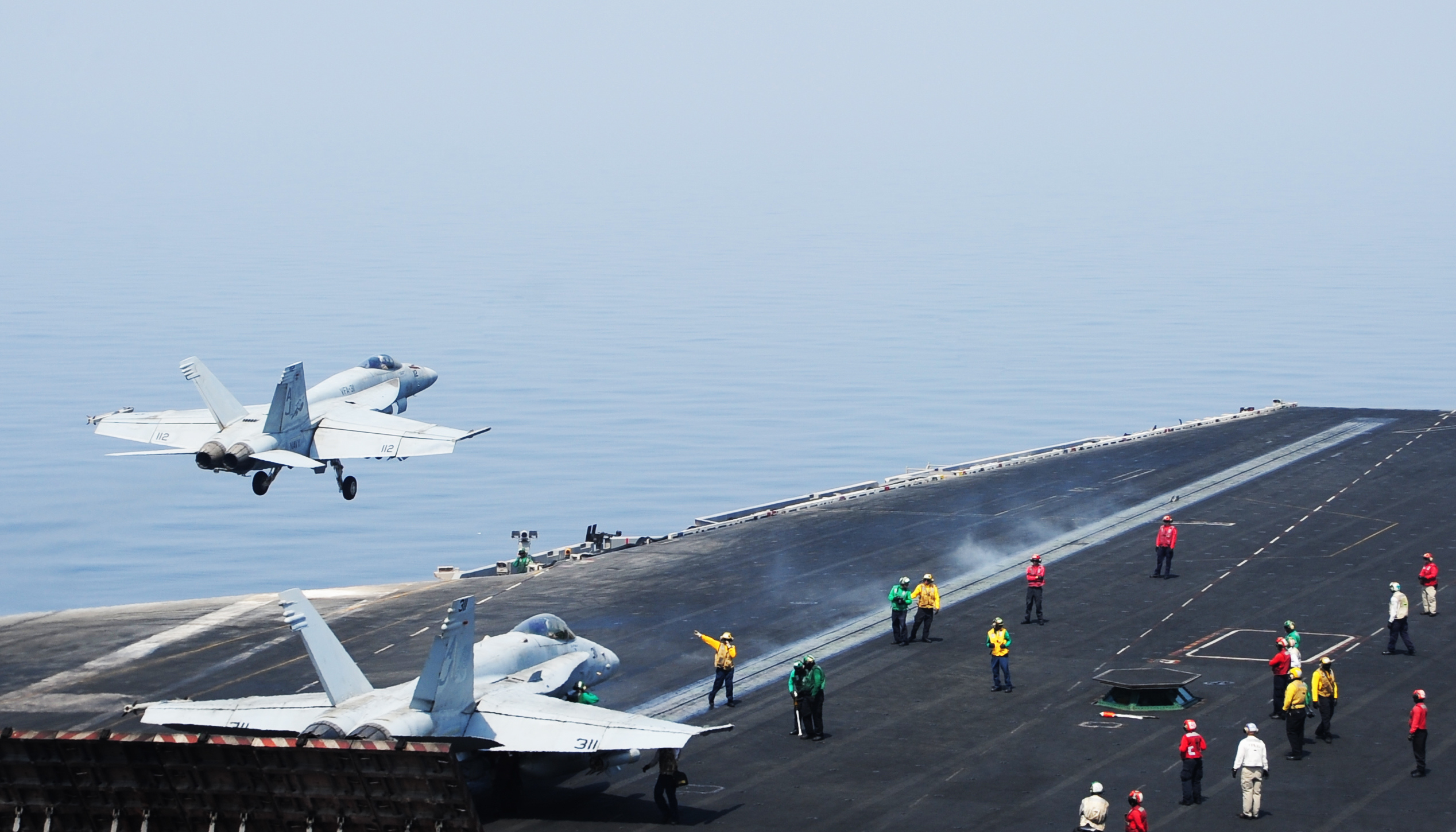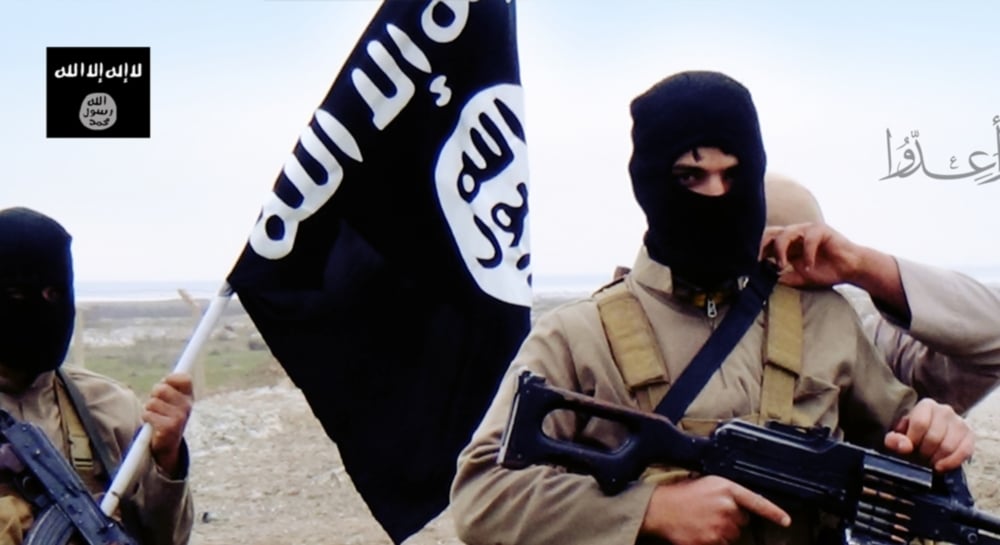
America announced its overt military support of the struggling Iraqi government in Baghdad with F/A-18 Hornets dropping two 500 lb. bombs on Iraq and Syria Islamic State (ISIS or ISIL) targets near Irbil, Iraq, on Aug. 7.
The strike, launched from the USS George H. W. Bush (CVN-77), was followed by a speech from President Barack Obama who said, “there is no American military solution to the larger crisis in Iraq. The only lasting solution is for Iraqis to come together and form an inclusive government—one that represents the legitimate interests of all Iraqis, and one that can unify the country’s fight against [ISIS].”
American airstrikes have continued.
Many of Obama’s critics in Washington who have pleaded for military action in response to the surprising success of ISIS in recent weeks are still not satisfied with that, “limited American response.”
Sen. John McCain (R-Ariz.) told CNN’s Candy Crowley on Sunday morning, that more U.S. bombing is needed and that more humanitarian aid and equipment should be rushed to Kurdish forces defending the city of Irbil immediately. McCain and many others in his party also decry the absence of more American troops in Iraq and paint the policy goals set by the administration as both vague and inadequate to deal with the increasingly alarming situation in Iraq and Syria.
Both sides of the debate agree that ISIS is a very serious threat to the region, but they disagree on how large a role the United States should play in dealing with the crisis. The Obama administration—by all appearances—is acting behind the scenes as much as possible to minimize the American face on the fight against ISIS.
This nuanced approach has been described by the president’s critics as “leading from behind.” The Obama statement is a clear indication that he wants the Iraqis to claim this victory. Developments in Iraq during the past few days offer encouraging signs that this may be possible.
Obama and his supporters contend that a more visible American approach risks pushing our allies in Iraq to the side and further damaging their credibility. By playing a supporting role to friendly Iraqi and Kurdish forces, with American airpower, special operations forces (SOF) and intelligence, the United States can allow the Iraqi army to win on the ground—where it matters most. A good argument can be made that this is the only way for the Iraqi army to gain confidence and for the Iraqi government to restore its credibility. This may be the best path to preserving what America sacrificed so much for to build in Iraq. However, it requires a degree of patience and restraint that is difficult for many in America—horrified by actions of ISIS—to swallow.
Those proposing greater U.S. action argue that this low-profile approach will not work because the threat is too extreme and America must take a more overt lead in both Iraq and Syria.They may be right, but it is still too soon to tell. One thing is certain: There is no appetite in America, or even in those nations most threatened in the region, to form a coalition force to go into Iraq and eliminate ISIS.

ISIS is clearly a serious threat, but by most informed accounts the organization consists of 5,000 to 10,000 hard-core fighters. In contrast, the U.S.-trained and equipped ISF, on paper, numbers some 270,000 soldiers. The ISF also has the advantage of a limited amount of organic airpower, access to both American- and Iranian-supplied intelligence, and powerful allies. Why then is it losing battle after battle to an inferior force? A more important point for America to ponder is what does this failure of Iraqi government and security forces in the post-Operation Iraqi Freedom era say about America’s effectiveness at nation building?
The argument that if we had left 5,000 US troops in Iraq this would not be happening is simply a counter-factual “what if.” We can never know if that is true or not; however, we only need to look at Afghanistan, where a significant Coalition/NATO force has been in place for 13 years. Even when friendly forces were at peak strength in Afghanistan, the Taliban still controlled as much as 40 percent of Afghanistan, and al Qaeda’s presence in the region has still not been eradicated. Since we went to great expense and effort to create a massive ISF before we departed Iraq, why then would the addition of 5,000 U.S. troops (who might have stayed in Iraq if a SOFA agreement had been reached) have mattered? They “might have” is the only honest answer.
It is equally possible that had we left a force in Iraq, it would now be calling for reinforcements, and the second surge to support the third American war in Iraq would now be under consideration. To answer Gen. David Petraeus’ famous question—“Tell me how this ends?”—the answer at this juncture appears to be: Not any time soon, and certainly not without a much greater commitment of blood and treasure by all parties interested in eliminating ISIS and restoring stability to the region.




